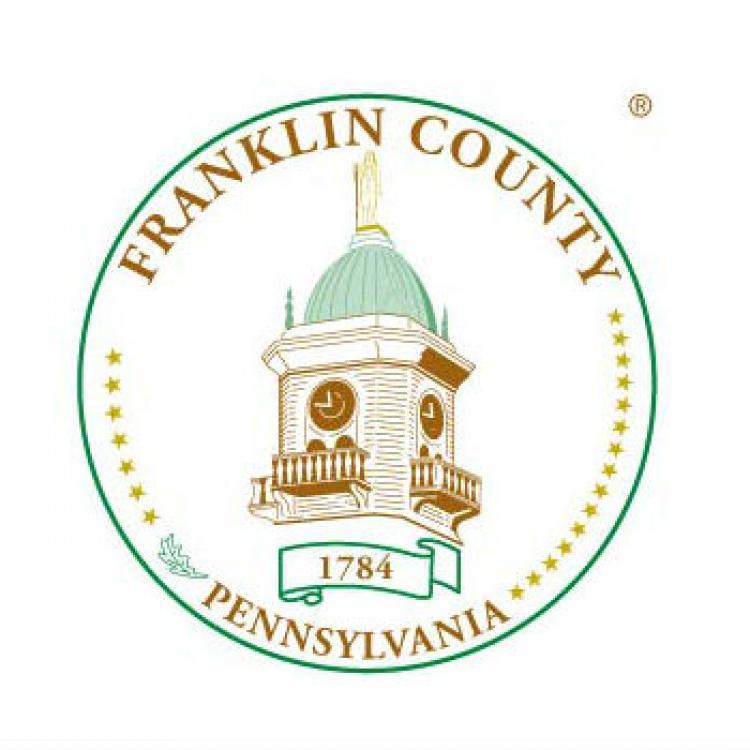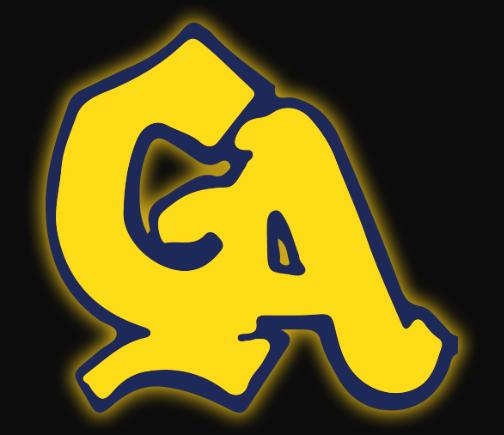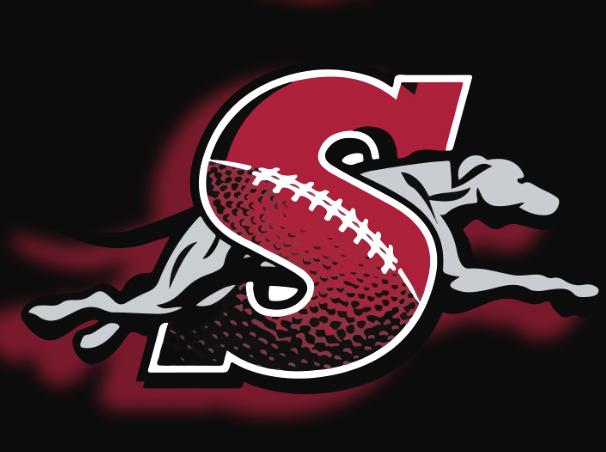

Employer Co-op Resource Guide
What is Cooperative Education?

A structured method of instruction combining school-based classroom learning with productive workbased learning.

Involves a planned partnership with specified connecting activities & responsibilities among parents/guardians, schools, employers, labor organizations, & government

Work-based learning takes place in an occupation matching the student's academic and career objectives.

Types of Cooperative Education Opportunities: Capstone and Diversified Occupations

WHY CO-OP?
Employers have the opportunity to hire highly motivated students whose career objectives are directly related to the job. Adds relevant information to the student that enhances the quality of their program.
Co-op is an excellent way for students to obtain "real-world" experience and future job placement.

What's the Difference?
Capstone
*Only available through Franklin County Career & Technology Center
Capstone students receive a cooperative education experience from the specialized areas of career and technical education including: agriculture; business, computer and information technology; family and consumer sciences; marketing education (formerly distributive education); health occupations; and trade and industrial education may participate in Capstone. Through cooperative education, these students “ cap off” their formal in-school career and technical education with a related employment experience at a school-approved, workbased learning site. (22 Pa. Code, Chapter 4 § 4.3)
Diversified
Occupations
*Available at the six county school districts
Diversified Occupations is a planned vocational program which may be offered at either the area vocational-technical school or comprehensive high school. The program prepares a heterogeneous group of students for more than one vocational education area of instruction for gainful employment. The program is a direct relationship/partnership between a local business/industry and the local education agency. Career competency and manipulative aspects of a skill are developed at the job training station site. The school, in a classroom setting, provides related general as well as technical instruction, including safety.
Diversified occupations
programs may include any of the occupational areas defined in (Chapter 339.22 Program Content/subsection (a)) or other occupational areas not offered at the comprehensive high schools or area vocational technical school. The diversified occupations program shall be available as a one-year or two-year program. This program is for 11th and 12th grade students who are unable to gain admission to a vocational program due to excessive numbers of applicants, inability to meet entrance requirements for other existing vocational programs, or lack of specific vocational areas offered at the comprehensive high school or participating area vocational technical school. When diversified occupations programs are provided, they shall be planned in accordance with the student’s stated career objective.
Employer Responsibilities
Hiring a co-op student requires being familiar with the following:
Pennsylvania Child Labor Law
The Pennsylvania Child Labor Act was enacted to "provide for the health, safety, and welfare of minors by forbidding their employment or work in certain establishments and occupations, and under certain specified ages. " The Child Labor Act establishes the age limits, hours of employment and the prohibited occupations for students who are residents of the commonwealth.
The provisions of the Child Labor Act apply to all situations in which an employer-employee relationship exits, including all paid work experience as part of cooperative education.
Resource links provided by the Pennsylvania Department of Labor and Industry:: 1. Pennsylvania Child Labor Act
https://www.legis.state.pa.us/CFDOCS/LEGIS/LI/uconsCheck.cfm?
txtType=HTM&yr=2012&sessInd=0&smthLwInd=0&act=0151.&CFID=341765195&CFTOKEN=691731 71
2. Regulations governing the employment of minors in industry. https://www.dli.pa.gov/laws-regs/regulations/Pages/Minors-in-Industry.aspx
3. Pennsylvania Department of Labor and Industry's Abstract of the Child Labor Law. All employers must have a copy of the abstract posted if they employ minors. https://www.dli.pa.gov/Individuals/Labor-Management-Relations/llc/Documents/llc-5.pdf
4. Prohibited occupations under the child labor act. https://www.dli.pa.gov/Individuals/Labor-ManagementRelations/llc/Documents/child labor law prohbitions.pdf
The Child Labor Act also requires all students under the age of 18 to complete an Application to Work Permit prior to beginning employment.
Youth Rules Employer’s Pocket Guide on Youth Employment from the U.S. Department of Labor:
https://www.dol.gov/sites/dolgov/files/whd/youthrules/YouthRulesBrochure.pdf
Clearance Requirements
Clearance Requirements for Designated Adult Supervisor of Minor Employees: Pennsylvania state legislation Act 153 of 2014 and Act 15 of 2015 Child Protective Services Law (CPSL) requires companies entering into Co-op or internship agreements (paid and unpaid) with public schools designate one adult employee to secure federal and state clearances. That individual will be selected in collaboration with the Cooperative Education Coordinator and will be the designated supervisor of the Co-op or internship student. These clearances are valid for 5 years. The designated adult supervisor is required to be in the child’s immediate vicinity at regular intervals during the program. Immediate vicinity is defined as ‘ an area in which an individual is physically present with a child and can see, hear, direct and assess the activities of the child.’ The law does not define regular intervals.
Link to obtain clearances: http://www.keepkidssafe.pa.gov/resources/clearances/index.htm
• ACT 34 – PA CRIMINAL CLEARANCE
• ACT 151 – CHILD ABUSE CLEARANCE
• ACT 114 – FBI CRIMINAL BACKGROUND CHECK
Documentation that may be required of the employer:
• Training agreement – statement of fundamental agreements and responsibilities initiated by the co-op teacher and reflects commitment of the coordinator, employer, student, parent/guardian, and teacher/school administrator.
• Training Plan – details the who, what, when, where and why of students on the job training experience.
• Monthly evaluations – opportunity for employer to reflect on the skills, abilities, and work ethic.
Student Responsibilities
The Cooperative Education Program provides students with many great opportunities and requires a significant amount of self-discipline and selfmotivation to succeed. Students are responsible to make good choices and sound decisions. It is essential that students recognize that this new-found independence carries with it additional responsibilities.
Samples of duties and responsibilities for Co-op students.
• To complete a blue transferable work permit before reporting to work if under 18 years of age.
• To contact my employer and the Co-op Coordinator each day that I am absent from work. This must be done prior to the start of the work shift or according to the company absentee policy.
• To start and finish work as outlined by the employer. Co-op students are not permitted to work third shift.
• To discuss job progress with the Co-op Coordinator and contact them prior to changing work schedule.
• To follow the rules and regulations set forth by school in addition to those of the employer.
• To attend required meetings as assigned by the Co-op Coordinator. Show respect and attention to staff, faculty, and guests of the Cooperative Education Program.
• To have the necessary paperwork/logs completed as required by the Co-op Coordinator available on Co-op meeting days.
• To show a positive attitude towards work and display proper work habits.
• To follow the rules and regulations set forth by employer.
• To remain with the same employer throughout the Co-op period.
• To obey all SAFETY PROCEDURES and to wear required PPE.
Documentation
Documentation that may be required of the student:
• Training agreement – statement of fundamental agreements and responsibilities initiated by the co-op teacher and reflects commitment of the coordinator, employer, student, parent/guardian, and teacher/school administrator.
• Training Plan – details the who, what, when, where and why of students on the job training experience.
• Weekly/daily logs on the details of the learning, work performed, successes and difficulties encountered.
• Logs on wages earned and hours spent on the job.
A COVID-19 waiver/consent form may be required to be completed by the parent/guardian of the student. It is understood that all businesses and organizations are doing their best during this current time and it is important to understand that policies and procedures may vary between the school and the business that a student is employed at.
Contact Information


Chambersburg Area School District
Kathy Jo Reinsmith, Coordinator Cooperative Education Program (CASHS & CMS) Business Teacher/FBLA Advisor
717-261-3322 Ext. 86701 kathyjo.reinsmith@casdonline.org
Fannett-Metal High School
Bradly R. Truax, Agricultural & Technology Education Teacher and Co-Op Coordinator
717-349-2363 Ext. 3065 truaxb@fmtigers.org




Franklin County Career & Technology Center
Kathy Estep, Workforce Development Coordinator
717-263-9033, Ext. 233 kathy.estep@franklinctc.com
Michelle Mellott, Workforce Development Assistant
717-263-9033, Ext. 205 michelle.mellott@franklinctc.com
Greencastle-Antrim High School
Charles Rice, School-to-Work Coordinator 717-360-3421 crice@gcasd.org
James Buchanan High School
Christine Shelley, Coordinator & Special Education Programs, TSD 717-328-2146, Ext. 2282 chris.shelley@tus.k12.pa.us
Shippensburg High School
Krista Akers, Career Coordinator
717-530-2730, Ext. 6914 krista.akers@ship.k12.pa.us

Waynesboro Area Senior High School
Thomas Hoffman, Career Coordinator
717-762-1191, ext. 2437 thomas hoffman@wasdpa.org
